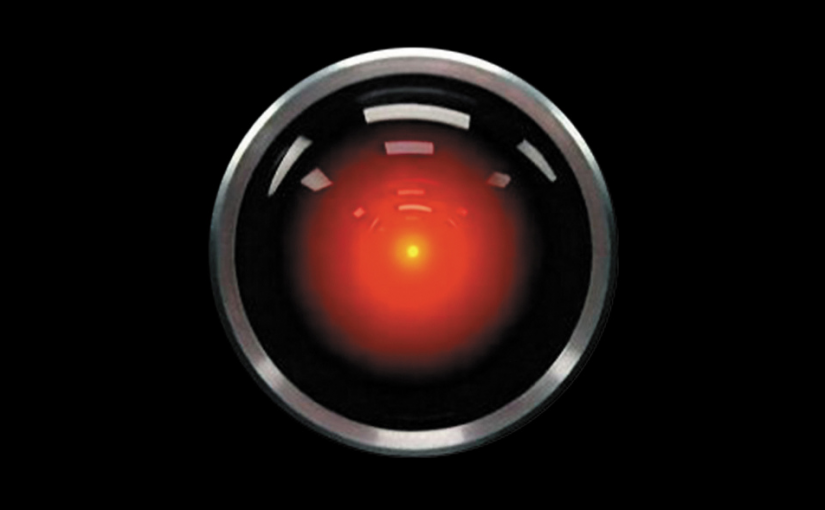When I came into the workforce in the early 90’s, any career connected to the computer was hot. The Internet was at its infancy. Any two or more (often just two) computers connected was called a network, which was a huge deal. Believe it or not email was the killer app. The World Wide Web was not invented yet, and when it came into the scene, finding a photo on a web page was a big deal.
My young and arrogant mind was extremely happy with myself, since I was all ready to take on the world with an engineering degree specializing in computers. It was a fearless time. We called the shots, not the employers. Our salaries increase astronomically, often with accompanying perks. We could do no wrong, because we were in demand.
I remember reading an article about our company’s solution. The solution was installed at a food and beverage manufacturer, who recently announced a significant layoff caused by the application of our software. Our customer was happy, because we saved them a tremendous amount of costs. I thought that anyone who picked a career in a job involving repetitive tasks will be in trouble. Cashiers, banking tellers, and warehouse pickers are a few that comes to mind.
We were all too eager to implement algorithms and solutions to turn repeatable tasks into optimal applications running on computers. We as a profession were clear and present danger to people’s livelihood who were dependent on honest jobs that are replaceable by robotics, advance supply chains, automated warehouses, or just simply better data visibility and communication. On reflection, I was / am part of a group that is undermining the economic value of a human being in a capitalist economy. People that are displaced are forced to upgrade and migrate their skills to other areas that are still in demand.
With artificial intelligence (AI) and machine learning coming into the consumer and business market in a big way, I am led to believe that the next set of jobs, jobs requiring judgement and decision making are now potentially replaceable by AI technology. Even software developer jobs may be under threat, when you have technologies like Viv that fulfills a human vocal request by manufacturing a custom program. I fear that replacement of traditional professions like lawyers and doctors are not too far away when IBM Watson can now perform medical diagnosis. How will these displaced professionals upgrade their skills?
In today’s news, one can frequently find mentions of self driving cars. How they are on the cusp of mass market availability and adoption. Companies like Tesla, Apple, and Uber are all either actively implementing production quality solutions or developing them. Imagine all the UPS, Fedex, freight truck and taxi drivers that will be displaced. The disruption does not stop there. If the technology is as successful as advocates tout it to be, then accident rates will drop. The transition from human to driverless solutions can translate to a large decline in automotive body shop business, and potential insurance revenue impact.
You can make arguments that displaced drivers will find other types of work, but I fear that under the current, exponential improvement of AI technology, the total some of human demand in the economy will continue to diminish, because AI will be so good that you will be hard pressed to find a job that AI cannot perform. So whenever you have an over supply of humans and a dwindling demand of their usability, you get erosion of the economic value of human beings.
So what’s wrong with this picture? Is it not good that AI capable machines pamper us and do all the hard work and thinking?
Assuming that we continue to function in a market based society, my immediate concern is, how does the next generation make their income when their economic value is eroded to the point where there may not be any jobs left. Well, I suppose there are jobs that involve creativity and innovation, such as artists, and musicians. From another hopeful perspective, this may resolve itself since providers, even if they are machine run, must find matching buyers with enough spending power to buy their products and services.
My second concern is, as a species, how do we continue to excel in our own knowledge and achievements, when AI can solve most of our problems. You can probably find some evidence of this today, with the usage of Google and other specialized search engines. I am not sure that the current education system are raising deep thinkers complemented by these new AI based tools, or more academically hampered ones because of the same tools.
Lastly, there is the Matrix or Terminator scenario, but the difference is that it may not be a violent take over. It could be a slow transition, as we welcome these technologies as new found creature comforts. A gradual displacement of our economic worth and values, until we are all powerless with our machine overlords. Or if you believe in Ray Kurzweil’s singularity, we can be in a symbiotic, and harmonious relationship with the AI machines.
Please tell me that my fear for our future generations are unfounded.


Would there be new jobs created to maintain the machine or develop AI?
Why couldn’t AI machines maintain themselves?